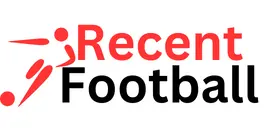The Italian football officiating landscape is set for significant changes as the nation’s referees embark on a new season. With the absence of experienced referees like Daniele Orsato, Matteo Irrati, and Paolo Valeri, Marco Guida has been appointed as the head of the officiating team. Guida, known for his role in the recent European Championships, will lead a group of 47 referees, alongside 85 assistants and 21 VAR officials, gathered in Cascia for training from August 4 until today.
Gianluca Rocchi, the officiating coordinator, has been retained for another two years. He aims to foster the development of younger referees and looks forward to committing to a rigorous agenda. Rocchi emphasized the need for progress, stating, “I live for what I do to achieve results.”
Racism on the pitch remains a crucial issue, and Rocchi has declared a firm stance against it. He stated, “We will not take steps back. Last year’s incident was well managed, and I want referees to be courageous, stopping the game at the first insult.” Furthermore, the focus on reducing time-wasting practices will intensify, with referees expected to take immediate action, just as they did during the European Championships.
The directives for the new season include a zero-tolerance policy for dangerous fouls, with Rocchi noting, “Last year we weren’t strict enough, but this year will be different. We need to protect players.” Referees are urged to make decisions as if they didn’t have VAR technology, minimizing delays in gameplay. The emphasis will be on quick, decisive actions to keep the flow of the match intact.
Several key points shape the new officiating guidelines in Italy. While the proposed sixth substitution for head injuries and the ‘cooling break’ have not been accepted, the focus on civility remains paramount. Captains will act as the primary point of contact for referees, and any discussions regarding decisions must be civil. Rocchi aims to elevate the role of the captain, making them the chief representative in discussions with officials.
Handball situations in the penalty area will also see changes: deliberate handball will warrant a red card, while accidental contact will receive a yellow card unless it interrupts a clear goal-scoring opportunity. Additionally, player incursions into the penalty area during a spot-kick will be heavily scrutinized, with a team potentially losing a penalty if an attacker improperly enters the area.
Rocchi concluded that a strong referee is one who makes decisive calls on the field but can also recognize and correct errors using technology shortly after an incident. As officiating in Italian football transitions, the aim is clear: to create a fair and respectful environment for all players while ensuring that the integrity of the game is upheld.
